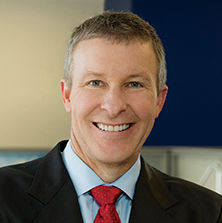
For Scott Kirby, becoming the first U.S. airline—indeed, one of the first large U.S. companies—to require employees to vaccinate against coronavirus was the only option.
When the pandemic started killing United employees, Kirby wrote letters of condolence to each of their families, and “that made it personal for me,” Kirby told CBS News. After a 57-year-old pilot became United’s first victim of the delta variant, he “walked around for half an hour and finally called my team and said, ‘Enough is enough. We can do something about this. We believe in safety. We know it’s the right thing to do.’”
United issued its mandate on Aug. 6. “The facts are crystal clear. Everyone is safer when everyone is vaccinated,” said a memo signed jointly by Kirby and United president Brett Hart.
Since then, President Joe Biden has ordered major U.S. airlines, classified as federal contractors, and many other with 100-plus to make sure their employees are vaccinated. While the federal mandate has been challenged in the courts and by various Republican state leaders, Kirby told CBS: “The fact that we got to 99.7 percent [of employees vaccinated] in less than eight weeks proves you can make a vaccine mandate work as long as you’re open about why you’re doing it.”
Kirby looks to have made the right call when it comes to pleasing corporate customers. A survey of travel managers by BTN found 73 percent considered a vaccine mandate critical, very important or important in deciding which airlines they wished to be their partners.
United has even become an informal educator on the topic. Senior vice president for worldwide sales Doreen Burse told BTN the carrier has been approached by several customers to advise on implementing their own vaccine mandates.
United has made big calls on other issues recently. “United and its pilots reached an agreement to fly fewer hours during the pandemic, but kept all their pilots on staff and ‘in their seats,’” wrote Cowen managing director and senior research analyst Helane Becker to investors on Dec. 3. “As a result, United was able to staff up quickly as demand returned, and as of early December has not had staffing issues similar to other airlines.”
Becker also drew attention to United’s sustainability strategy, stating that the Chicago-based carrier “has nearly half of all publicly announced purchase commitments for SAF among all global airlines.”